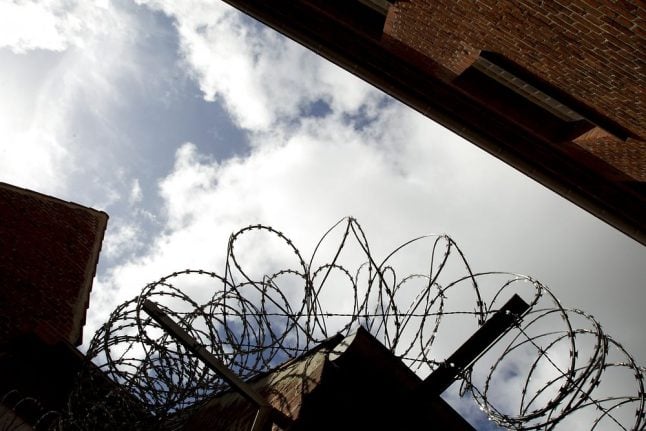His proposals came on the heels of nearly two weeks of protests in January by prison guards angry over security risks and poor pay, the first major industrial dispute he faced since his election last year.
Conditions in French prisons have long been an embarrassment for the state, with Macron himself once describing them as “disgraceful”.
“Incarceration keeps going up because at the basic level, it's a symbolic solution that most people want to see,” Macron said in an address at a penitentiary training centre in Agen, southwest France.
He said France now had nearly 70,000 inmates, the equivalent of 100 prisoners for every 100,000 inhabitants, up from just 48,000 as recently as 2001.
To ease the overcrowding, Macron called for an end to any prison term of less than one month, and said those shorter than a year would no longer be applied “automatically”.
“Prison sentences less than or equal to month will be ended because they don't serve any purpose. They don't allow for any checks or follow ups. We want an effective justice system,” said Macron.
Les peines inférieures ou égales à 1 mois seront proscrites parce qu’elles ne servent à rien. Elles ne permettent aucun contrôle, aucun suivi. Nous voulons une justice efficace.
— Emmanuel Macron (@EmmanuelMacron) March 6, 2018
“Sentences of 1 to 6 months may be applied (outside prison) using electronic tags. All will be accompanied by socio-educational follow-ups,” said Macron.
Judges will also be asked to apply more alternatives such as electronic bracelets, on-the-spot fines and community service for minor offences, such as
driving infractions or drug use.
And some 1,500 jobs will be created to reinforce probation and re-insertion programmes.
“This is anything but laxism,” he said.
“I believe few of the people given terms of less than six months are truly dangerous for society.”
But for longer sentences, Macron wants to end any shortening of the time that must be served: “A punishment has to be credible and understood,” he said.
The 188 prisons across France currently have an average capacity rate of 120 percent, with some in the Paris region reaching as high as 200 percent.
An official report on conditions at the Fresnes prison near Paris, one of the country's largest, in 2016 found it to be infested with rats, with prisoners sleeping three to a 10-square-metre (100-square-foot) cell, and said surveillance was “illusory”.
The January protests by guards erupted after a convicted Al-Qaeda extremist attacked guards in a high-security facility in the north of the country with a razor blade and scissors, injuring three of them.
The protests ended after the government announced a package worth 30 million euros ($37 million) in extra pay for guards as well as the creation of 1,100 new prison jobs.
Macron also said he wanted to improve conditions of prisoners in jails.
“We are sentenced to prison but not to lose all our rights.We are condemned to imprisonment but not to promiscuity, rats and bedbugs”, he said adding that he wanted prisoners in France not to have their right to vote stripped when they are incarcerated.
“They have tried to explain to me why prisoners did not have the right to vote, but I still don't understand,” Macron said.
.jpg)



 Please whitelist us to continue reading.
Please whitelist us to continue reading.